The all-male council trying to get women elected
- Published
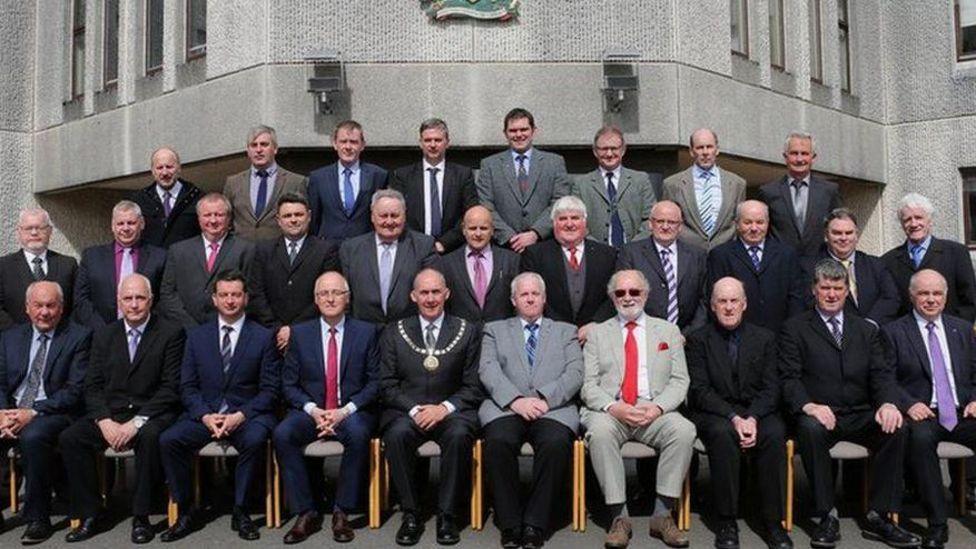
"We were very conscious of the fact women hadn't been elected."
Norman Macdonald, the retiring convener of the Western Isles local authority Comhairle nan Eilean Siar, is talking about a photograph hanging on the wall of the council's offices.
The picture, taken after the 2017 election, shows the new cohort of men elected to represent the islands.
The Western Isles is not the only place where gender representation has proved to be a problem.
In the last vote to elect new councils across Scotland, which took place in 2017, only 29% of those elected were women, external. That was up from 24% on the election before.
Concerned by the result, and keen to address historically low levels of female representation, the comhairle held a workshop earlier this year aimed at encouraging more women to stand.
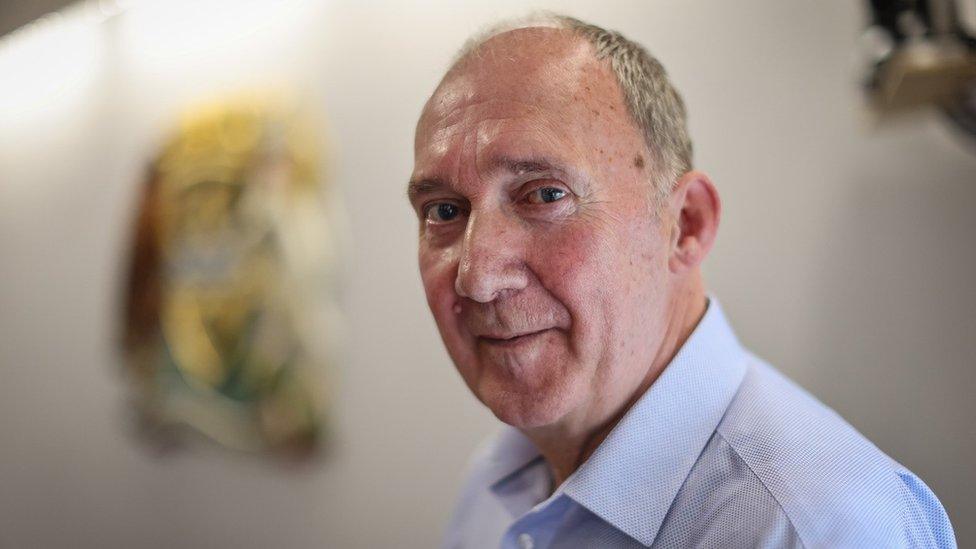
"We had 80 people in the same place having that conversation," Mr Macdonald said.
"But the reality for us is that we now only have eight of that cohort who've put themselves forward".
The low number of female candidates standing in next week's council election has raised questions about how the long-standing issue of gender diversity can be tackled.
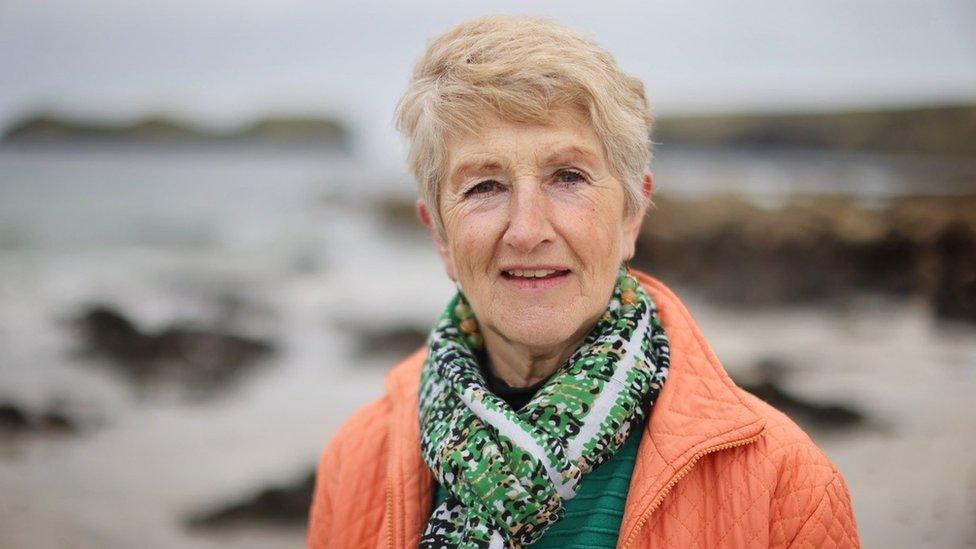
Zena Stewart was one of three women elected in 2012
Zena Stewart was one of three women elected out of 31 councillors between 2012 and 2017.
She says the ban on council employees standing for election prohibits many women, given the local authority is a large employer.
Other barriers include the time required to fulfil the role. She only got involved in politics following her retirement from a career in education.
"I was working full-time, I had a family, and I could never have juggled the council work, attendance at meetings, attendance at community events, my full-time job and looking after children," she explained.
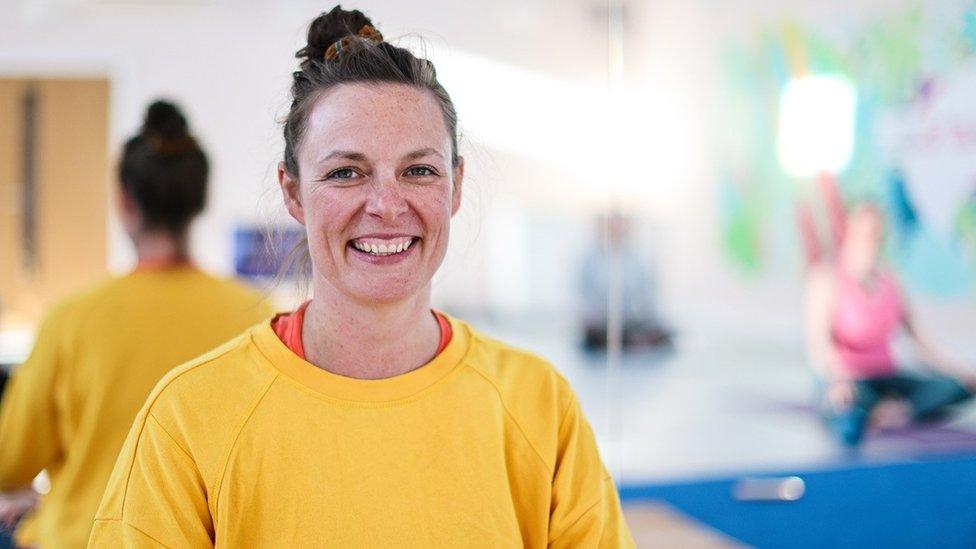
Kirstie Anderson owns Sandwickhill Studios
Another obstacle is pay, with councillors earning around £18,600 a year.
"It's not enough money to make a fulltime job out of it," says Kirstie Anderson, owner of Sandwickhill Studios in Lewis.
"And for women who have kids, most of the meetings are in the evenings. It's difficult for them to give it their all."
The issue of gender diversity has been a topic of conversation at the studio's Pilates class.
Regular Ruth Macleod points out that plenty of women in the Western Isles hold prominent roles, from business owners to community leaders.
But she says the all-male council line-up is off-putting.
"If in the back of your mind you feel 'I'm going to be a lone voice in there, and it's going to be a really tough journey ahead for me,' then there's possibly enough barriers just to say, 'no, there's plenty of other things I can be devoting my time to'."
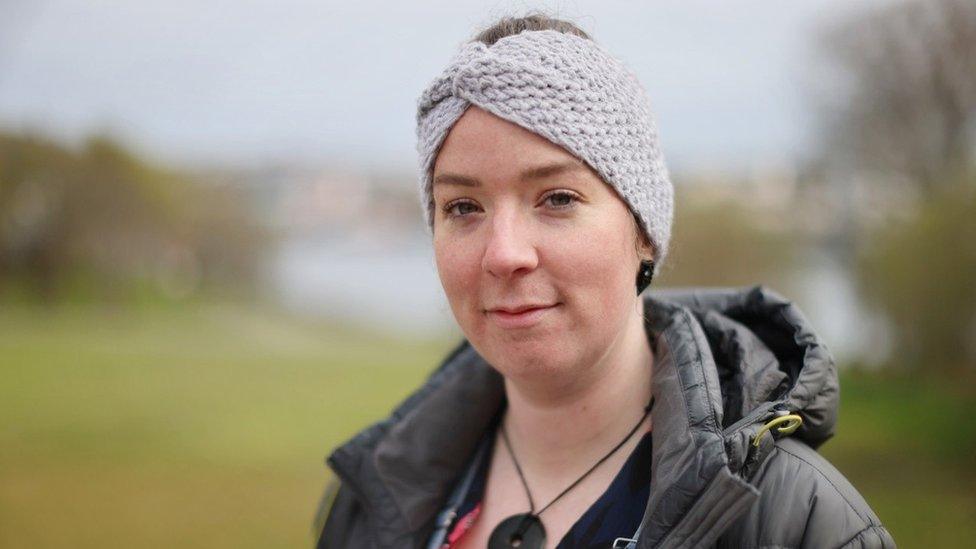
Fiona Rennie said the all-male line-up was "off putting"
It's a sentiment that's shared by photographer Fiona Rennie, who says she wouldn't consider standing for election.
"It's quite off-putting that's it's all male, all of the same sort of age range," she said.
"I don't know how much my voice would be heard in that audience. I think my voice would probably get diluted in that company."
The John Smith Centre at Glasgow University aims to make a positive case for participation in politics.
Its director Kezia Dugdale said: "There are so many reasons why women don't stand for public office, not least the misogyny that still exists in so much of our political culture.
"But there are very specific reasons related to the Western Isles.
"For example you don't have political parties being as dominant as they are in other parts of the country. It's much harder to get elected as an independent without that reputation in the community that you can build up over a period of time."
In 2017, 23 out of 31 councillors were independents. There were also seven SNP and one Tory councillor elected.
While the Western Isles offers a stark example of gender inequality, Ms Dugdale says it's a more widespread problem, with women making up less than a third of councillors elected at the last local government ballot.
She says political parties have taken steps to address gender imbalance, but believes more drastic action could be required.
"I think we should be asking much bolder questions about the system," she said.
"Should we be having quotas for female candidates? Should there be legal requirements on councils and on political parties to increase the number of women that are standing?
"That might drive more of the change at a faster pace that we really want to see."
Women give a 'different perspective'
Zena Stewart acknowledges the presence of female candidates on the council between 2012 and 2017 made a difference when it came to decision-making.
"Women do see things from a different perspective," she said.
"Even the way discussions go, I think people maybe respect others' ideas more."
But she questioned how quotas could work.
"I don't like the idea of women being put in just because they're women," she said.
"It would be very difficult and I'm not sure it's representative of the wishes of local people, and I think that's important."